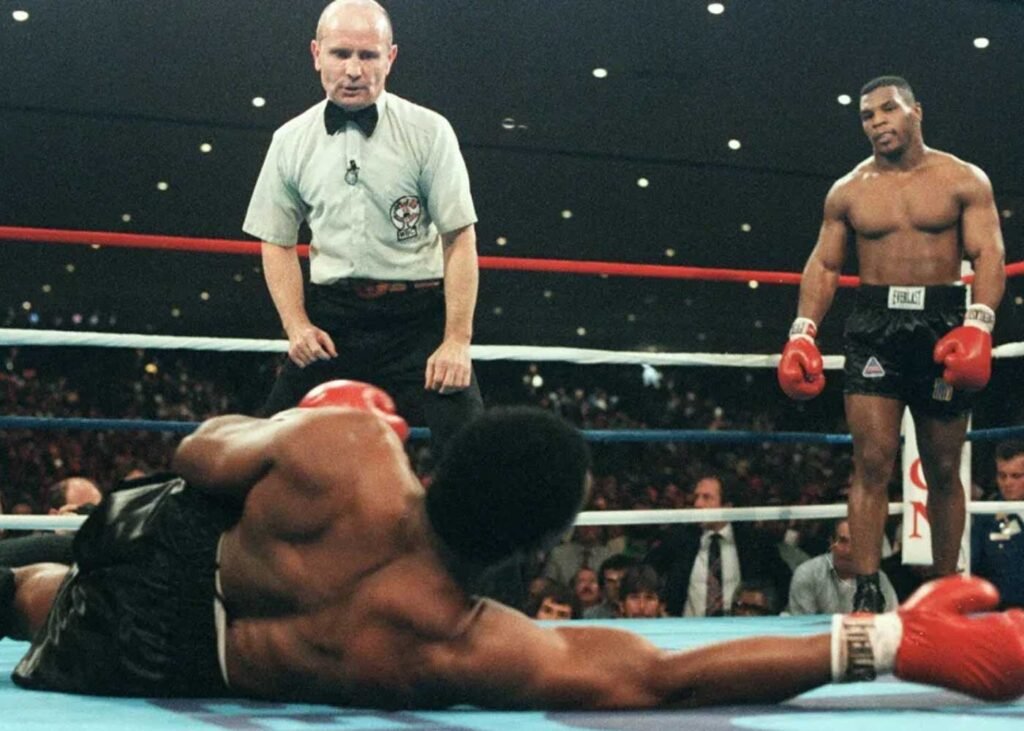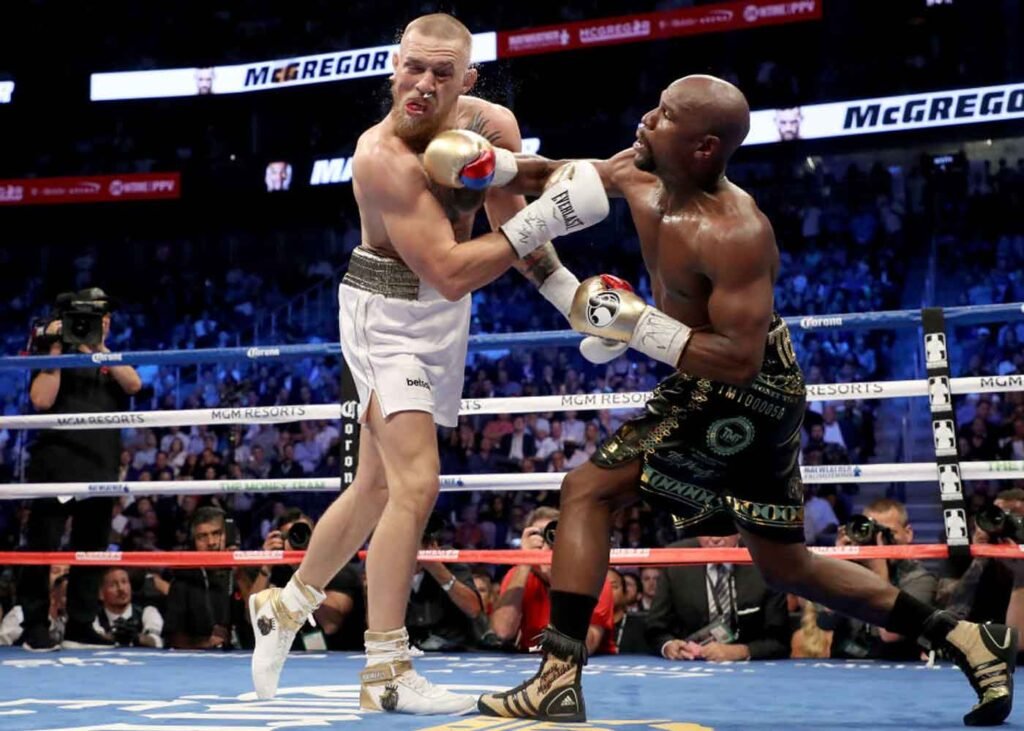Beginning with the invention of motion pictures, boxing, and the movie have been inextricably linked. As the sport rose in prominence during the twentieth century, so did the film genre that revolved around it. Because of the sport’s fabled origins, violent battles, and lengthy history of societal upheaval, it can serve as a metaphor for practically whatever you want it to be. They might be straightforward combat stories, but more often than not, they are deeper studies of greedy commercial exploitation, poverty, brutality, and racism.
Boxing embodies every virtue that we expect from our lives. It instills in us the qualities of concentration, strength, willpower, and patience. Most importantly, the willingness to go the additional mile and the will never to give up.
However, there will come a moment when you will be depressed and will seek shelter in the realm of fiction. Take advantage of the opportunity to see a boxing movie that will encourage, motivate, and inspire your fight!
Here are a few must-see movies for boxers, as well as for the overall population.
Cinderella Man (2005)
Ron Howard’s portrayal of real-life heavyweight champion James Braddock is a clichéd, however well, a narrative of 1930s America set in the 1930s. Braddock was a darling with a round face who was compelled to work as a manual worker in various low-paying jobs during the Great Depression to provide for his family. Because of his remarkable comeback triumph over champion Max Baer in 1935, he earned the moniker “Cinderella Man.” Baer was a powerful fighter, but the film’s biased portrayal of him as a simple villain detracts from the historical authenticity of the story. It was widely believed that Baer was a brutal opponent because of his involvement in the death of another boxer in the ring, an incident that tormented him. However, he was not renowned for the type of malicious malice depicted in Howard’s picture.
Ali (2000)
This ambitious work of filmmaking provides a decent, if not very exciting, an attempt by Michael Mann to record the expansive and much-acclaimed life of Muhammad Ali. Will Smith’s best performance as a significant screen presence is unquestionably this. After spending a significant amount of time studying Ali’s fight footage and hours of candid video footage, he and the filmmaker produced a very accurate film with tons of technical correctness but a somewhat mechanical feel overall. The film hits all the biographical beats, and its first half or so is riveting, never backing away from the splendor, scandal, or flaws of narcissism that are inherent in Mann’s subject matter. The biggest problem is that it is difficult to capture Ali’s quicksilver, larger-than-life charisma. That’s a significant accomplishment for any filmmaker.
Night and the City (1992)
This remake of the famous 1950 film starring Richard Widmark in war-torn London changes the original narrative, a huge letdown. Boxing replaces pro wrestling as the principal sport, and the setting is changed from New York to the Big Apple. Robert De Niro portrays hustling lawyer Harry Fabian. The latter attempts to beg, steal and defraud his way into a boxing promoter’s license and the necessary funds to get his business up and running. As Harry becomes increasingly entangled with the seedy underbelly of the business, he finds himself in the company of loan sharks and mobsters. Ultimately, the film is a fatalistic mash-up of ancient noir conventions and contemporary violence. Still, it does so confidently understand that boxing is as corrupt as it has always been.
Million Dollar Baby (2004)
Clint Eastwood’s legendary venture into boxing saw him also putting his toes into the realm of near-classical tragedy with The Magnificent Seven. Hilary Swank’s performance as the tough and tenacious Frankie is unforgettable. The actress took in advanced training to look and feel the part in the ring, even putting on 19 pounds of muscle for the character of Frankie. Eastwood’s performance as a washed-up old-time trainer who is initially baffled by the prospect of teaching this tough female underdog is equally impressive; he finally develops a father-daughter bond with Frankie, which is heartwarming. Given the film’s gut-punching finale, it’s safe to assume that this is the boxing film most likely to have you sobbing at the end title credits sequence.
Resurrecting the Champ (2007)
Rod Lurie’s 2007 film, featuring Samuel L. Jackson and Josh Hartnett, is an examination of thwarted writerly dreams as a boxing drama. The film is directed by Rod Lurie, who also directed the film. Prizefighting and journalism are two professions that have long been intertwined; covering prizefights has provided journalists with illustrious careers as well as flavorful prose. Champ, a homeless guy, known locally as “Champ,” is the angle that eager young Denver sportswriter (Hartnett) is striving for when he encounters him (Jackson). It turns out that the stray is none other than Bob Satterfield, a former heavyweight contender who was once a household name.
While anxious to convey the champion’s narrative, a story that perfectly fits the mythology of boxing history, the reporter begins to distort the facts to present the story more dramatically. Even though it is not an all-time great, it is a highly intelligent picture about the agony of what could have been in both the boxing and the literary worlds.
The Fighter (2010)
This magnificent David O. Russell film on the actual Ward brothers, Micky (Mark Wahlberg) and Dicky (Christian Bale). Both were professional welterweight boxers who rose to prominence in their birthplace of Lowell, Massachusetts, amid the late 1980s crack and crime pandemic. Although Dicky had fallen victim to a drug habit, he was still the pride and joy of his overbearing mother, who cherished him as her own son. He is now employed as a coach and close ally of his brother, but he is aware that he must maintain his sobriety to use his family. It is as much about the connections of love and camaraderie among brothers as it is about the redeeming hard labor and painful breaks that come with professional boxing in this heartfelt family story. Everyone involved takes great effort to ensure that both emotional and sporting reality is achieved.
Rocky (1976)
Although it may seem self-evident now, Sylvester Stallone’s portrayal of Rocky Balboa must rank among the most memorable and memorable performances of the 1970s. A glance back to the first film serves as a reminder of the series’ humble and low-fi beginnings and the economic and spiritual depression that many Americans were experiencing in the aftermath of the Vietnam War. It was an uplifting cinematic hero in an otherwise depressing decade to have Sylvester Stallone’s cute, dopey bum who has no genuine aspirations suddenly placed into a million-dollar bout with the world’s greatest boxing champion. Burt Young, Carl Weathers, and Talia Shire deliver outstanding supporting performances that add new dimensions to the old stereotypes of the trainer, opponent, and ring girlfriend—offering bruising insecurity, tenderness, and the underside of egotism that are unlike any other stock characterization in the industry. The idea that Rocky’s brilliant failure in the ring might be seen as a statement of American grandeur despite a dispiriting defeat was not a leap at the time of the film’s release.
Final Words
So, if you are feeling down, and have low self-esteem, take a weekend and watch any of these classic boxing movies. We promise it will help!



